|
One hundred and eighty years ago, on a wet autumn day, Joseph Davis was grabbing an opportunity with both hands. A farmer in his early 30s from Moneylane Townland in County Wicklow, married for almost 14 years to Catherine Bell (or Butler), with 3 sons and a daughter, Joseph stood before Henry White, a Wexford gentleman and wealthy landlord, at Clonganny House. White offered Davis a lease for 104 1/2 acres at his Garrynew farm for £119 per annum and a promise to plant 300 ash or fir trees within 3 years. The lease would last for length of Davis's life and for the life of his youngest child, Joseph Henry Davis, age 5. On October 7, 1824, Davis agreed to the terms and the Davis family was on their way to Garrynew Townland. The future was hopeful for the Davis family but life in Ireland was always dangerous and uncertain. The island was troubled and violence and famines were common, especially in Wexford. Only a generation earlier, in 1798, Protestant government policies ignited a determined Catholic rebellion, in which both loyalists and insurgents committed brutal atrocities against each other, destroying many properties. The British defeated the insurgents but the rebellion ultimately led to a more conciliatory direct rule by the British government. Unfortunately, British policies created new tensions. In 1823, the British Parliament passed a law compelling Irish Catholics to pay a tithe to support the Church of Ireland, to which the Davis family belonged. This ill-considered Act provoked smoldering resentment and sporadic violence until Parliament finally modified the Act in 1838. Even accounting for these troubles, Joseph Davis was a lucky man. He had a good lease for a large farm and he was fortunate to have a landlord that actually lived in the region and who was, by repute, a fair and generous man. At this time, many Irish landowners lived outside the country, renting their Irish properties to the local Irish and taking the money out of the country, further impoverishing the nation. Even worse, their poor land management kept farms small, from 10 to 15 acres, forcing the subsistence farmers to rely on potatoes, a crop vulnerable to blights. Also, most Irish farmers could be evicted at will, meaning that they invested very little in improvements to the land, which hurt their productivity. However, there were fun and games in Wexford. There was a thriving horticultural society, where the participants competed their gardens against one another. There were also annual farming exhibitions, where various livestock and farming produce was judged. Garrynew Townland, or An Garraí Nua in the Gaelic tongue, meaning "New Garden", was 115 kilometers south down the Irish Sea coast from Dublin, within the Civil Parish of Ardamine. Henry White owned all of Garrynew and had leased out the property to three farmers: Joseph Davis, Fossy Bolton, and Joseph Hopkins. An 1851 map of the property shows the division at that time, although we don't know exactly how the property was divided in 1824. Some of my distant Davis cousins who have travelled to Ireland have reported that the Davis house no longer stands. Of the 3 farms on this map, two still exist, while the western farm is now an empty field. If this is where Joseph and Catherine and their family settled, then we can see what it looks like today; or at least on August of 2009. Over the next years, the Davis family prospered and grew, with Catherine and Joseph adding several more children to complete the family. Given the time, and some of the gaps between the children, its possible that there was some tragedy, which was not uncommon during this time. William (b. 1813) George (b. 1815) Dorothy (b. 1815) Joseph Henry (b. 1820) John (b. 1825) Jane (b. 1827) Henry (b. 1829) Ann Catherine (b. 1832) Edward (b. 1835) With 22 years between the first and last children, Catherine was 44 years old when she gave birth to their last child. In 1831, the British government assessed the Davis farm for property taxes. Joseph Davis was recorded as possessing 103 1/2 acres, for which he owed 7 pounds, 15 shillings, 3 pence in taxes. Using the labor index, that would equate to taxes of £9,326 today, or over CAD$16,000. The Davis family was moderately prosperous. In the United Kingdom, only male landowners could vote. However, in 1832, Parliament passed the Representation of the People Act, extending the franchise to freeholders who held large leases for life, including Joseph Davis. The local Wexford Conservative Newspaper regularly published lists of electors, which included Joseph Davis of Garrynew. This may have been my first non-American ancestor enfranchised to vote. In late September, 1839, Joseph attended the annual show of North Wexford Agricultural Society, chaired by Lord Stopford, the Earl of Courtown. During this large festival, farmers showed various classes of livestock, crops and produce, including butter. Joseph won second prize for butter, farmer class. The Irish Poor Laws established a Board of Guardians for each civil parish, which would administer the poor laws for the area, determining how the poor were to be assisted and whether workhouses should be constructed. The ratepayers of the parish were to annually elect 3 men to the board. Joseph Davis was was nominated to this board by Conservative rate-payers, opposed by local Whig candidates. The Conservative Party of Ireland was strongly loyalist and Protestant but also supported Home Rule, as they believed an Irish parliament, where most landowners were Protestant, could best support Protestant interests. While we don't know Joseph's precise political beliefs, he was a strong enough Conservative to nominate to an important local office. In 1840, Joseph's and Catherine's eldest daughter, Dorothy, married William J Bolton, whom I believe was a widower with 4 young children. There were Boltons living just north of Garrynew in Ballylusk and immediately to the south in Ballyduff Lower, so the groom may have been from one of these families. Shortly after, Dorothy delivered Joseph's and Catherine's first grandchild, Ann Elizabeth Bolton. Their eldest son, William, married in 1841 to Sarah Young. On July 12, 1841, Joseph Henry Davis, now 21 and listed on the lease for life, became eligible to vote. His name appears on the October 9, 1841 list of electors, along side that of his father. Sadly, on the March 26, 1842 list of electors and all subsequent lists, Joseph Sr. has disappeared. Further, on the 1845 census, Catherine Davis is listed as the owner of the Garrynew property, next to Joseph Hopkins. This appears to indicate that Joseph Davis died sometime late in 1841 or early in 1842, possibly about 60 years of age. With 3 grown sons, the family likely endured the loss of Joseph without too much economic hardship. However, in 1845 the family face a new challenge, along with the rest of Ireland. Beginning in America, then spreading to Continental Europe, a particularly devastating potato blight appeared in Ireland in 1845. The potato was the staple crop of Ireland and the loss of 1/2 of the crop that year had catastrophic consequences. During past blights, the British government banned the export of potatoes. This time, the government badly underestimated the effects of the blight and Irish landlords, many of whom lived in England, shipped food away from the starving island. The British government did eventually react to the famine, ineffectively, but by 1847, 400,000 men, women, and children had died. Staggering financial losses from the famine caused landlords to evict hundreds of families from their farms. The angry displaced farmers retaliated by murdering several landlords in response. Meanwhile, hundreds of thousands of Irish emigrated to the new world, with 100,000 migrating to Canada in 1847 alone. Joseph Henry Davis appeared on elector lists until February 13, 1847. According to letters from family researchers, the family then sold their lease and joined the migration migrated to Canada. This was no easy journey; thousands died of disease and malnutrition, sometimes killing both parents of families, leaving behind large numbers orphans. There is no indication that the Davis's left together or separately but almost all settled in eastern Upper Canada, now Ontario. Catherine Davis settled in Augusta Township in Grenville County, along with three of her sons, John, Henry and Edward, her daughter, Jane, and 2 grandchildren, Ann and William Bolton, the children of her oldest daughter, Dorothy. Her oldest child, William, settled nearby with his wife and children. The only son missing appears to have been George. The last record of him appears in the February 10th, 1844 issue of the Wexford Conservative, where he listed as one the men who had obtained a license to keep firearms. A letter from a family researchers believes that he had died in Ireland. A record of a George Davis of the right age, born in Ireland, does finally appear in Augusta Township on the 1891 census, suggesting that he may have simply not joined the family, but there is no evidence this is him. Joseph Henry Davis married Sarah Bolton (b. 1832), shortly after arriving in Canada and they settled in Elizabethtown Township, Leeds County. Sarah Bolton may have been a daughter Dorothy Davis's husband, William J Bolton, and his first wife, Deborah Redmond. Dorothy and William had also immigrated and settled nearby. Their daughter, Joseph's niece, and possibly Sarah's half-sister, lived with the Davis's for a time. Joseph and Sarah would move from Elizabethtown to Augusta in Grenville County and then to Wicklow in Hasting County. Along the way they grew their family: George (b. 1848) Sarah Jane (b. 1851) Joseph Henry Jr. (b. 1854) Robert (b. 1856) Deborah Ann (b. 1857) Agnes (b. 1866) Eliza Margaret (b. 1869) William John (b. 1875) When her younger children grew up and moved out on their own, Catherine lived in with Joseph Henry Davis Sr. until her death in 1868. Interestingly, when William J Bolton died in 1881, George Davis was the one who reported his death. While he may have been reporting the only death of his uncle by marriage, if that was the only relationship, there were closer relatives at hand who could have handled those matters. it makes more sense that he was reporting the passing of his grandfather. Sarah Bolton Davis died in Maple Leaf, Hastings County in 1886. Her husband, Joseph Henry Davis Sr., followed her in 1902, his son, Joseph Henry Davis Jr. handling his affairs. Joseph Henry Jr. would marry Delilah Grace Burlanyette and their oldest son would be Charles Elijah Davis, my great-grandfather. The Davis family appear to have remained close for the rest of their lives and their descendents also remained in touch. Starting in the 1970s, the Davis family have reunited on a regular basis, recently celebrating their 45th reunion.
Three years ago, my parents delivered boxes of photos and documents for digitization. In that box were several wonderful old photographs, including one of my 2nd great grandfather, Peter Campbell, great grandfather Charlie Davis, and 2nd great grandfather Joseph Henry Davis Jr. The young lad is my Grandma Grace's oldest brother, Peter.
The photograph was glued to a stiff board but somehow still managed to get torn. It was also faded, blotched and stained. Photoshop to the rescue! Below is the "restored version", although, like George Lucus did with his remastered Star Wars, it removes some of the original detail, such as the sheet hanging over the window. I'm not sure Charlie would have objected to the removal of the ugly sheet but perhaps I should put it back in. Thoughts? |
Archives
2023 JAN FEB MAR APR MAY JUN JUL AUG SEP 2022 JAN FEB MAR APR MAY JUN JUL AUG SEP OCT NOV DEC 2021 JAN FEB MAR APR MAY JUN JUL AUG SEP OCT NOV DEC 2020 JAN FEB MAR APR MAY JUN JUL AUG SEP OCT NOV DEC 2019 JAN FEB MAR APR MAY JUN JUL AUG SEP OCT NOV DEC 2018 JAN FEB MAR APR MAY JUN JUL AUG SEP OCT NOV DEC 2017 JAN FEB MAR APR MAY JUN JUL AUG SEP OCT NOV DEC 2016 JAN FEB MAR APR MAY JUN JUL AUG SEP OCT NOV DEC 2015 JAN FEB MAR APR MAY JUN JUL AUG SEP OCT NOV DEC 2014 OCT NOV DEC Categories |
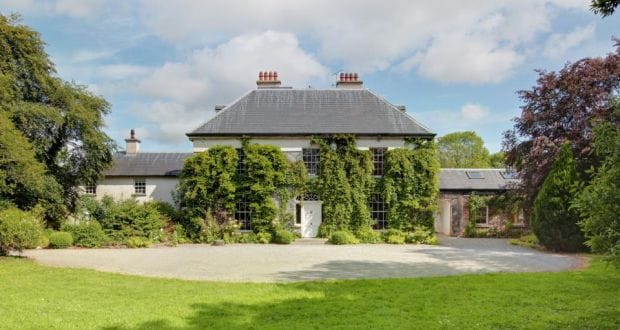
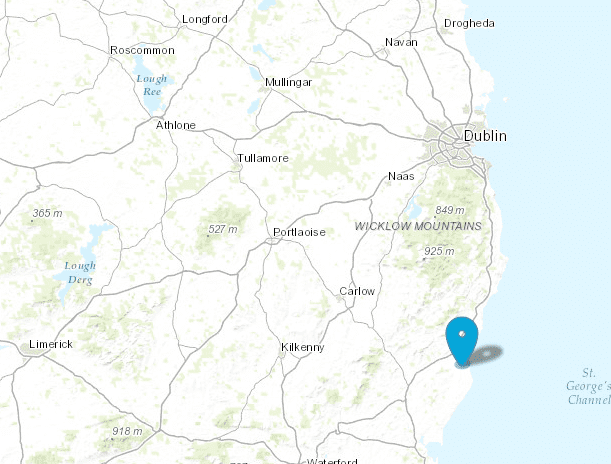
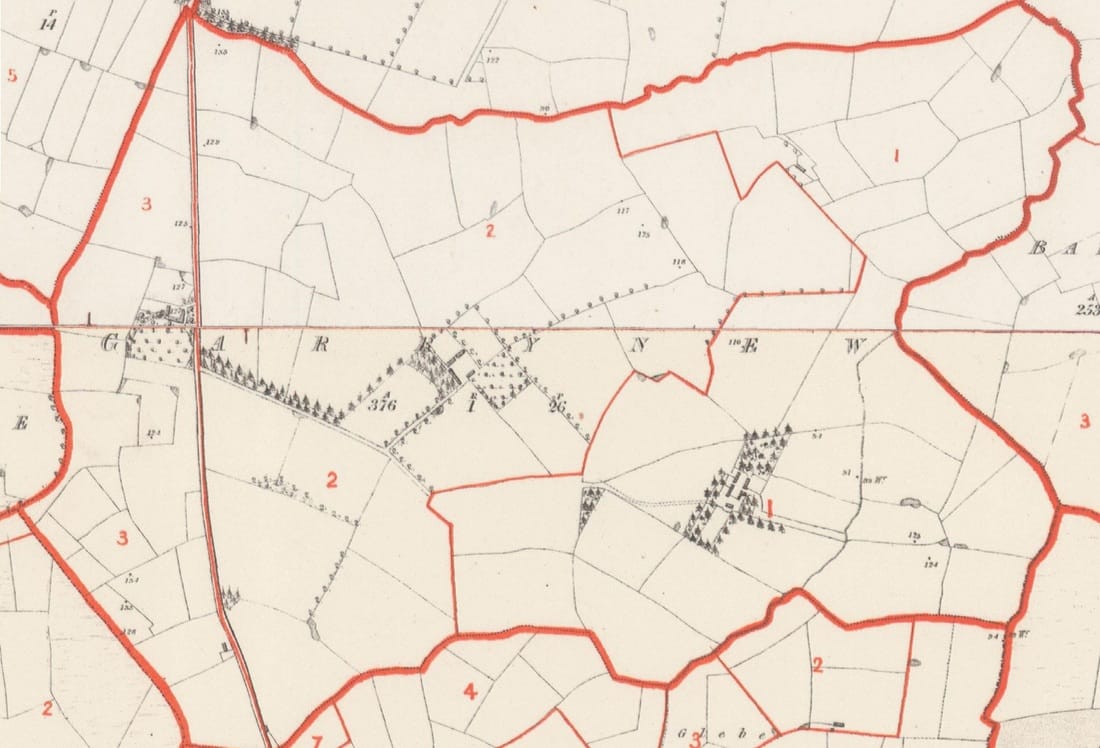
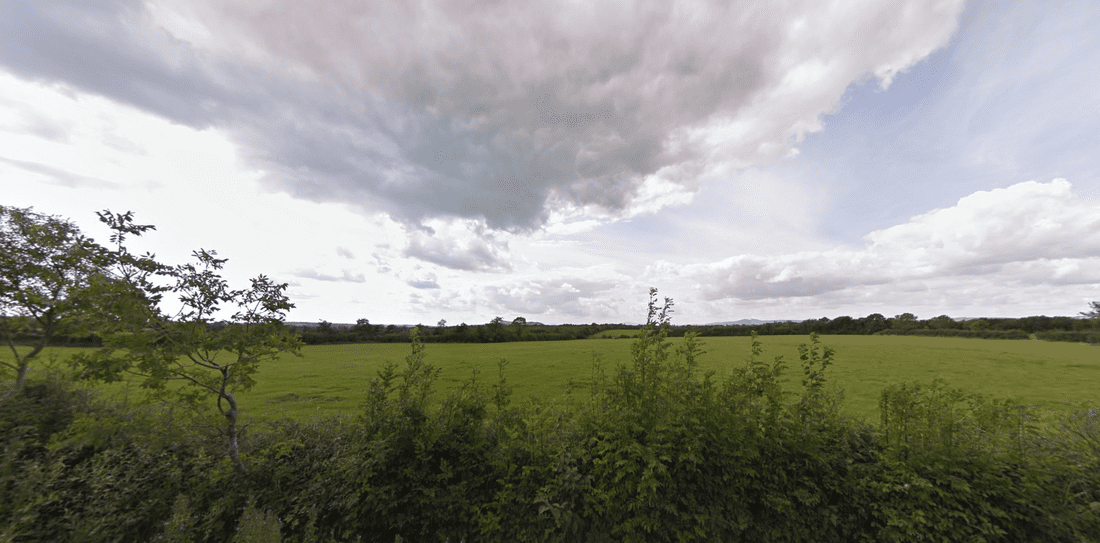
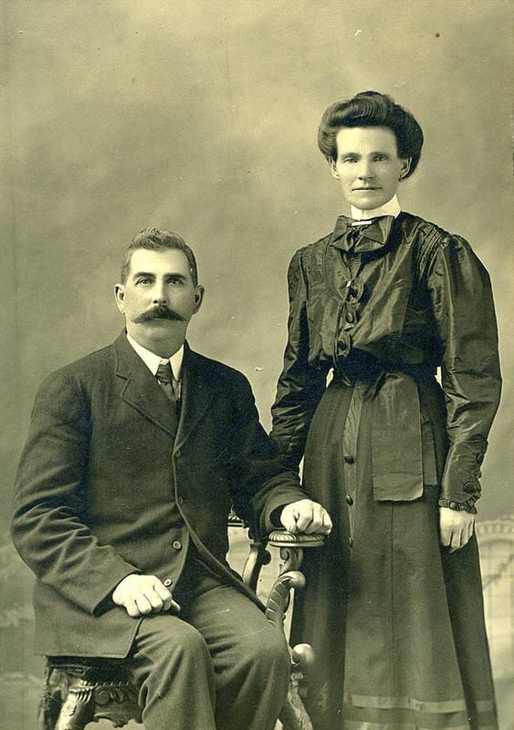
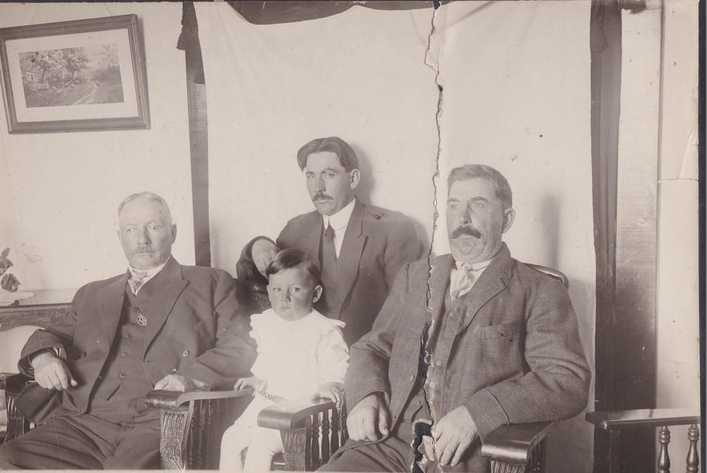
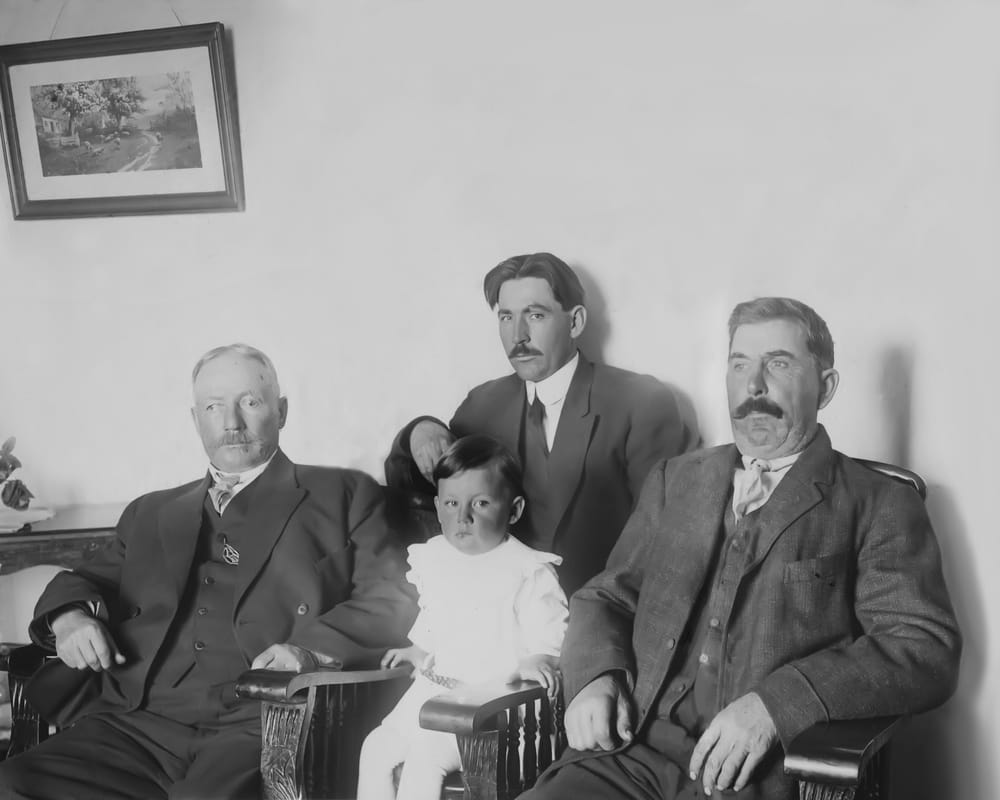
 RSS Feed
RSS Feed